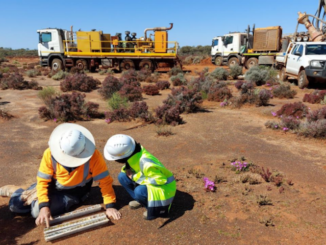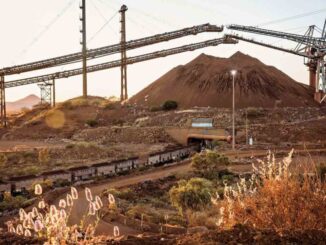
Being put down or condescended to based on gender, and receiving offensive sexist remarks, remain common themes in Western Australia’s mining sector, the Mental Awareness, Respect and Safety (MARS) Program Landmark Study shows.
The report was produced by the Centre for Transformative Work at Curtin University, whose researchers surveyed more than 2,500 workers and conducted in-depth interviews with 60 individuals to gain insights into their experiences with a focus on three critical areas – creating mentally healthy workplaces, building a culture of safety and respect, and preparing for workplace safety in future mining.
In detail, 41% of female mining workers reported they had experienced being put down or condescended to, while 34% reported receiving offensive sexist remarks such as suggesting that people of their sex are not suited for the kind of work they do.
Even though the study found that covert forms of sexual harassment such as sexism and misogyny are high, it also noted that sexual attention and sexual coercion are decreasing.
In addition to the prior, only four in 10 WA mining workers reported feeling satisfied with their jobs and nearly one in three said they were likely to try to find a new job with another employer in the next 12 months.
“Our research found one in three mining workers experiences emotional exhaustion regularly, indicating high levels of burnout. Disturbingly, covert forms of sexual harassment, including sexism and misogyny, persist,” MARS Program Landmark Study chief investigator, Sharon Parker, said in a media statement. “The negative impact of these experiences on mental health and well-being is evident, emphasizing the urgent need for change through improved work design, leadership and organizational culture.”
In Parker’s view, given that the mining sector constitutes 10% of the Western Australia workforce and plays a pivotal role in the state’s economy, this type of study is crucial.
Lead author Cheryl Yam said that while the findings acknowledge workplace culture was improving as companies pay more attention to reducing discrimination and harassment, a collective commitment is needed to achieve meaningful and lasting change in building a respectful workplace culture.
“The mining industry is a leader in physical safety. With the support and resources from the MARS Program, we are confident that the mining industry is well positioned to also be a leader in mental health and well-being,” Yam said. “Our research findings provide a roadmap for meaningful action to address and reduce covert forms of sexual harassment and create respectful workplaces to attract, retain and prevent harm to women and people in other minority groups.”
The study also highlighted that 30% of mine workers reported high or very high levels of psychological distress and 38% reported feeling burnt out at work.
Also, 16% of workers reported having experienced bullying (22% reported witnessing bullying) at least 2-3 times per month in the past six months.
On the positive side, most WA mine workers reported high levels of physical safety behaviours such as safety compliance and safety participation. Yet, underreporting of notifiable safety incidents and near misses continues to exist in the industry.
Finally, 60% of fly-in-fly-out mine workers reported being satisfied with their accommodation while 73% of male FIFO workers reported feeling physically very safe in their work-provided accommodation compared to 53% of female FIFO workers.
Take the Survey at https://survey.energynewsbeat.com/
ENB Top News
ENB
Energy Dashboard
ENB Podcast
ENB Substack


